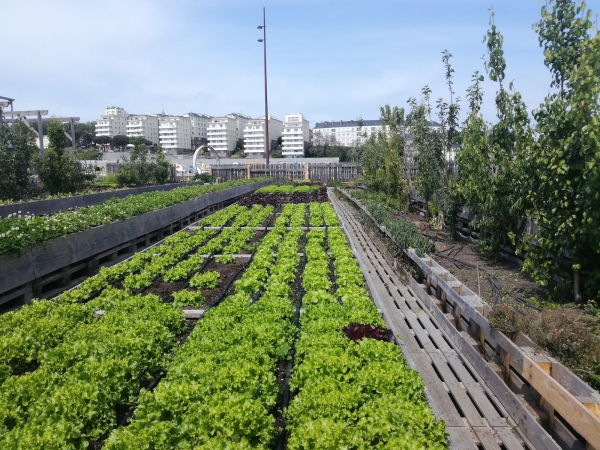A new University of Michigan-led international study finds that fruits and vegetables grown in urban farms and gardens have a carbon footprint that is, on average, six times greater than conventionally grown produce.
However, a few city-grown crops equaled or outperformed conventional agriculture under certain conditions. Tomatoes grown in the soil of open-air urban plots had a lower carbon intensity than tomatoes grown in conventional greenhouses, while the emissions difference between conventional and urban agriculture vanished for air-freighted crops like asparagus.
“The exceptions revealed by our study suggest that urban agriculture practitioners can reduce their climate impacts by cultivating crops that are typically greenhouse-grown or air-freighted, in addition to making changes in site design and management,” said study co-lead author Jason Hawes, a doctoral student at U-M’s School for Environment and Sustainability.
Read more at: University of Michigan
Urban garden in Nantes, France. (Photo credit: Baptiste Grard)


